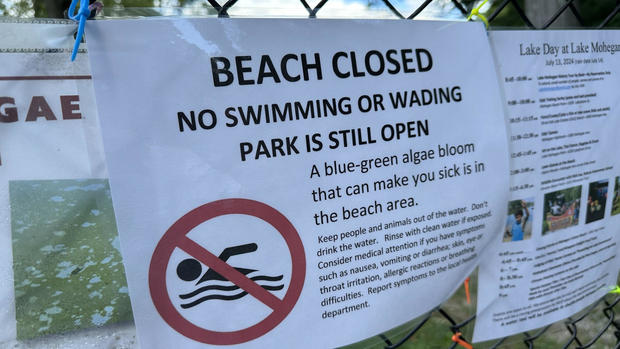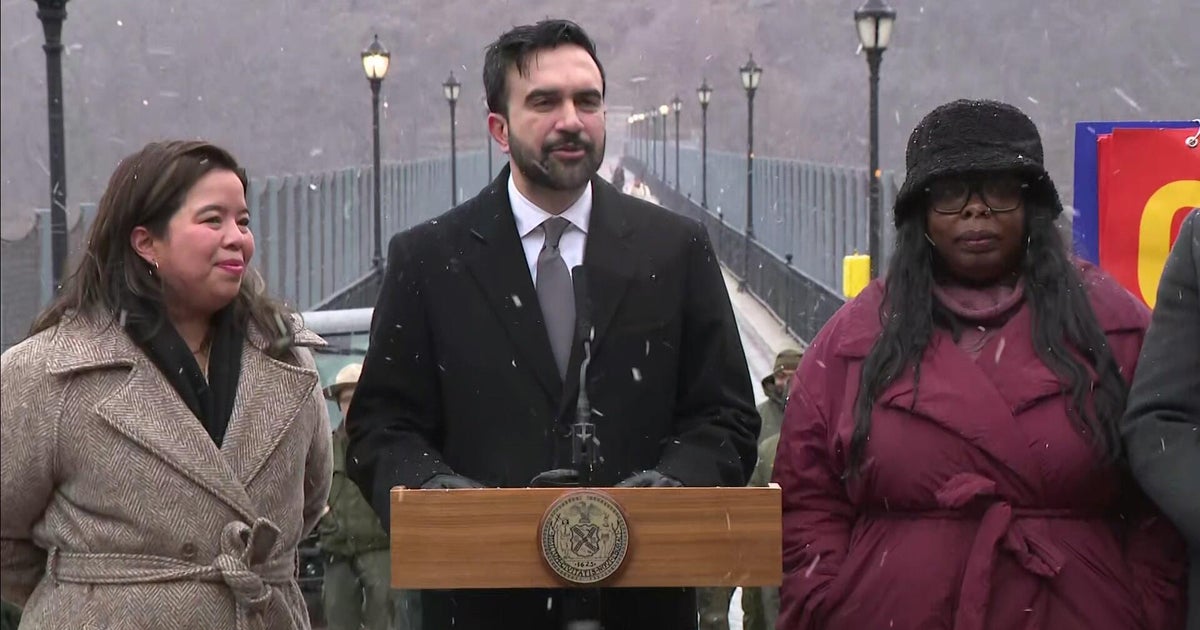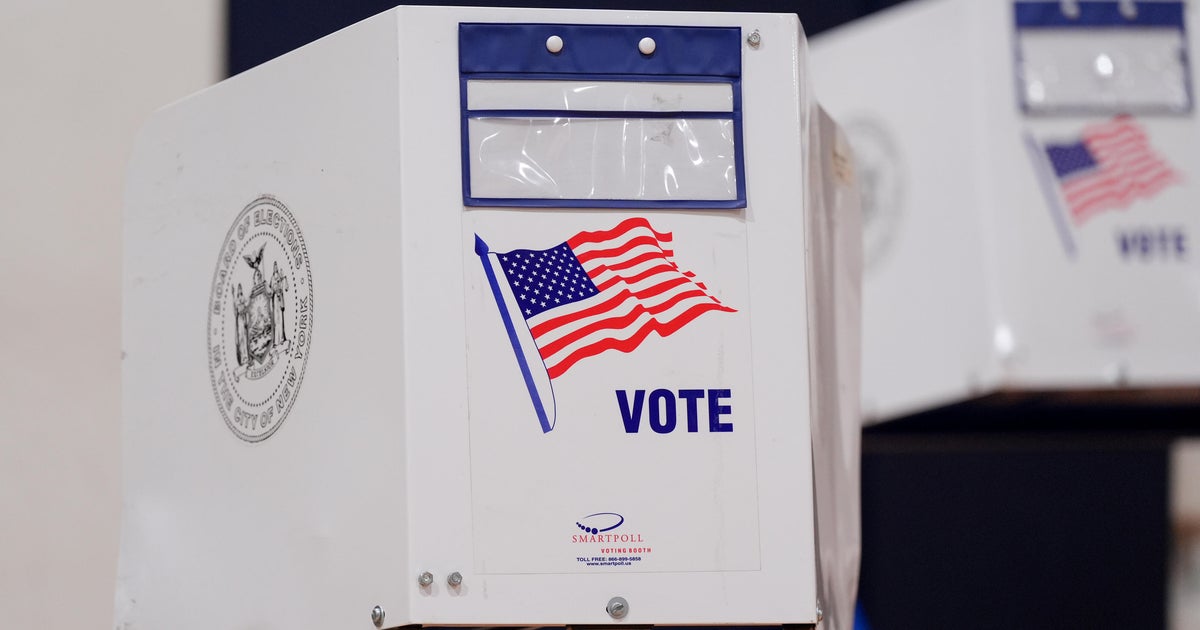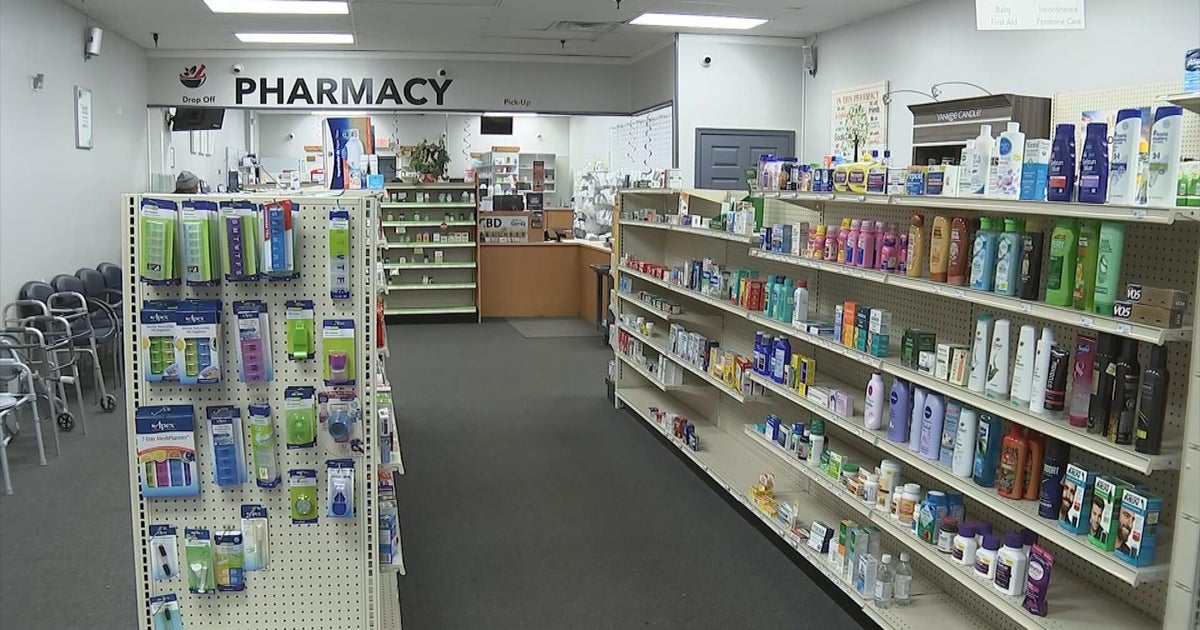Algae blooms wreaking havoc on New York swimming lakes. Here's what's being done to fix the problem.
SLOATSBURG, N.Y. -- Popular swimming lakes in Hudson Valley counties are shut down due to unsafe levels of algae.
Talk about a summer bummer. Lake Welch Beach in Rockland County, which has room for 9,000 sun seekers, is closed. Thursday was a perfect summer beach day, with acres of sand and no one there to enjoy it. Pictures from Wednesday show the disgusting algal bloom that prompted the closure of the 220-acre lake.
"It's actually caused by cyanobacteria," said Ed McGowan of New York State Parks Department of Recreation and Historic Preservation. "When you get this green, milky condition in the water, they can produce a toxin, and we want to keep people and pets away from that toxin."
Not far away at Lake Mohegan in the Westchester County town of Yorktown, there is another closure due to so-called harmful algal bloom, or HAB.
Algae has also done a number on the pond at Gedney Park in Chappaqua, where thousands of fish have died.
"You sit close to the water, it doesn't smell good," said Victoria Ayeh of Chappaqua.
"Just so bad. Can't stand there too long," another woman said.
So what's the remedy?
Because the blooms of blue-green algae are an increasing problem, there is now a push for New York state to do more to stop them from disrupting summer fun.
Assemblyman Matt Slater, who represents parts of Westchester and Putnam counties, wants the state to classify harmful algal bloom as a water contaminant to unlock funding for sewer improvements and mitigation efforts.
"You're seeing it on Long Island, upstate, and it's really having a direct impact on our residents and our tourists, too," Slater said. "We need the funding from New York to finally get into the water and fix these problems."
Back at Lake Welch, solar panels power an ultrasound unit that can reduce algal blooms. The lake was also treated this week with copper sulfate.
"It kills the algae, bacteria in this case. It clears the water, but we have to go through a testing process to make sure the lake is safe so people can return to swim," McGowan said.
New York State Parks hopes the lake can re-open next week.









